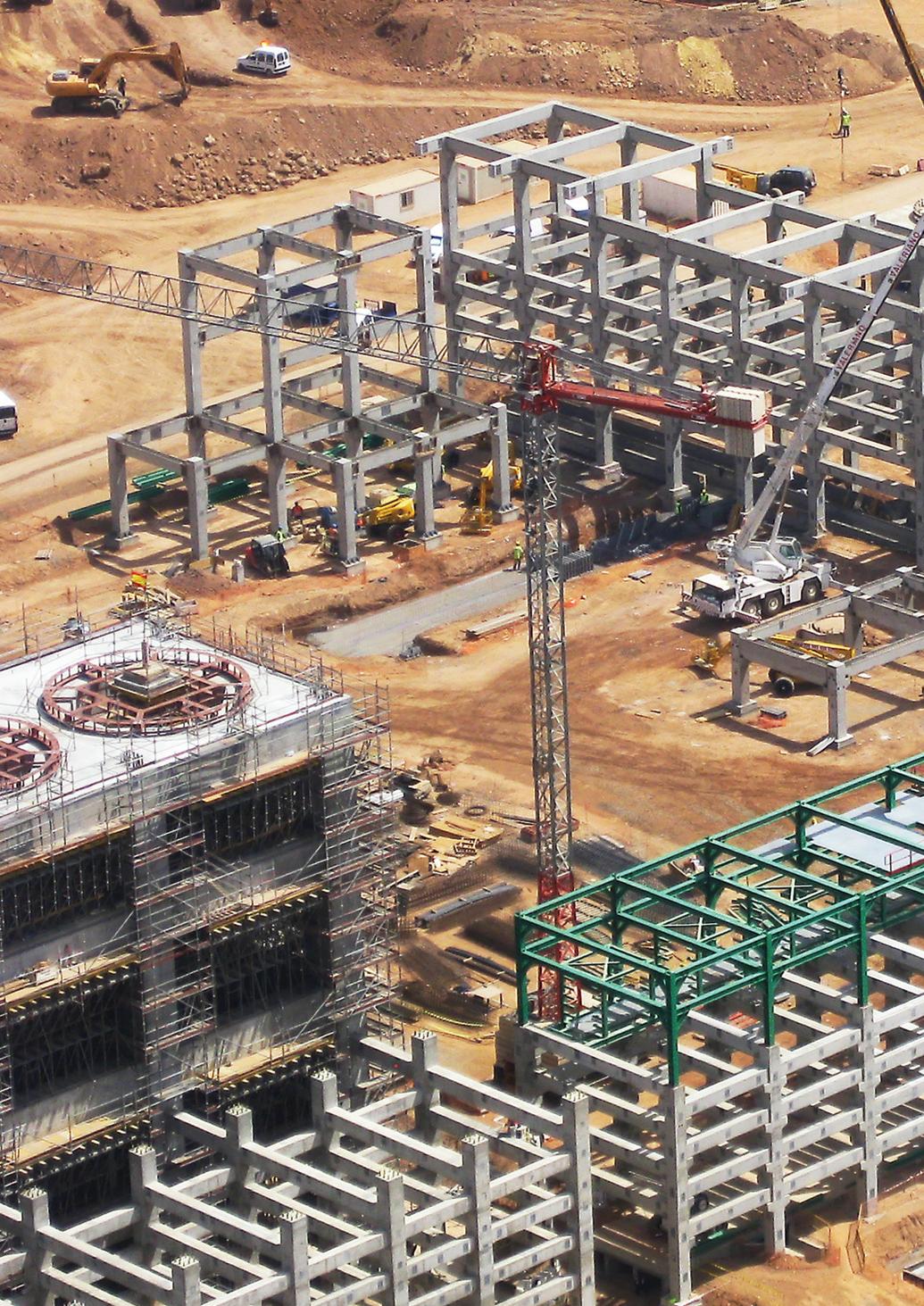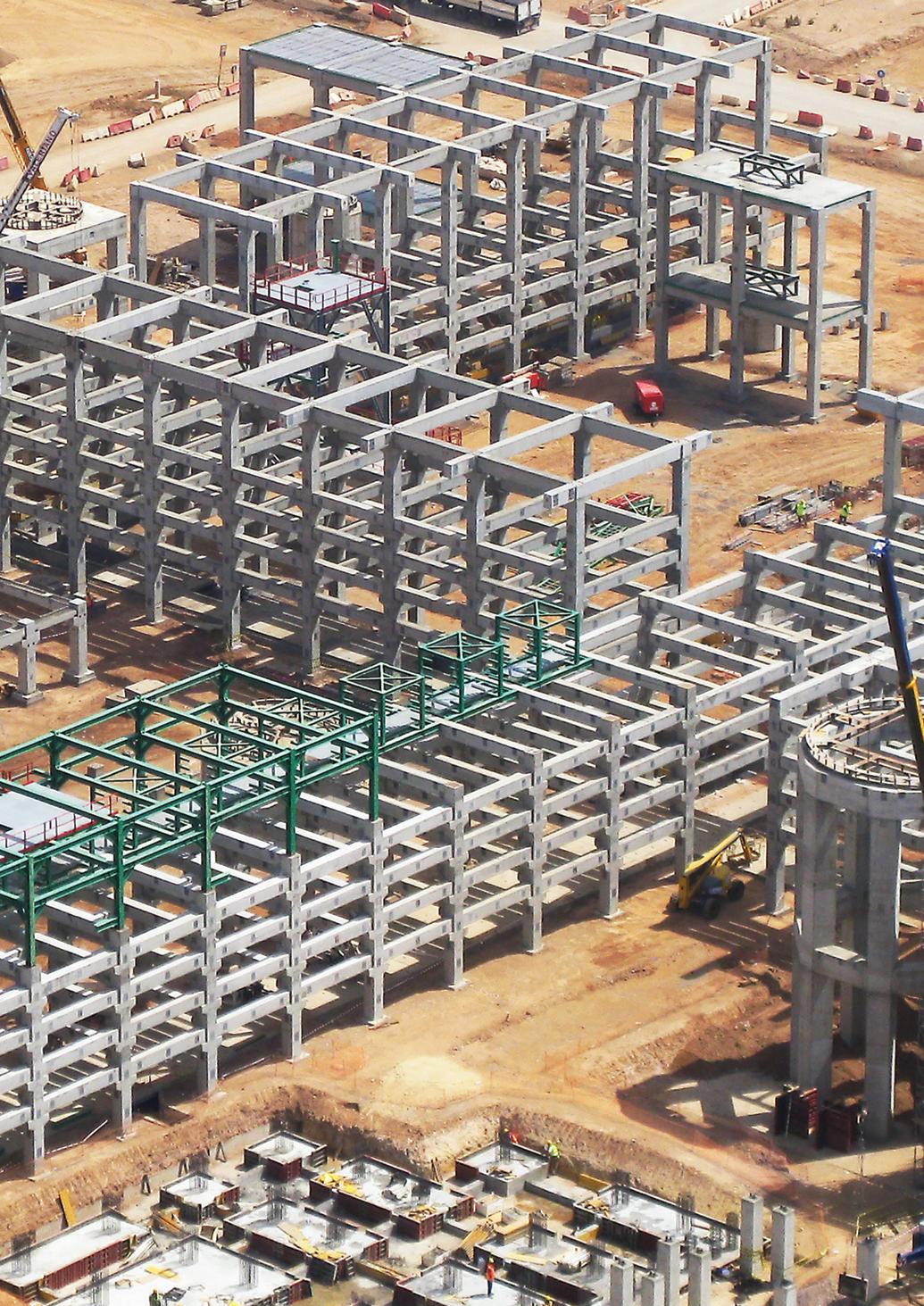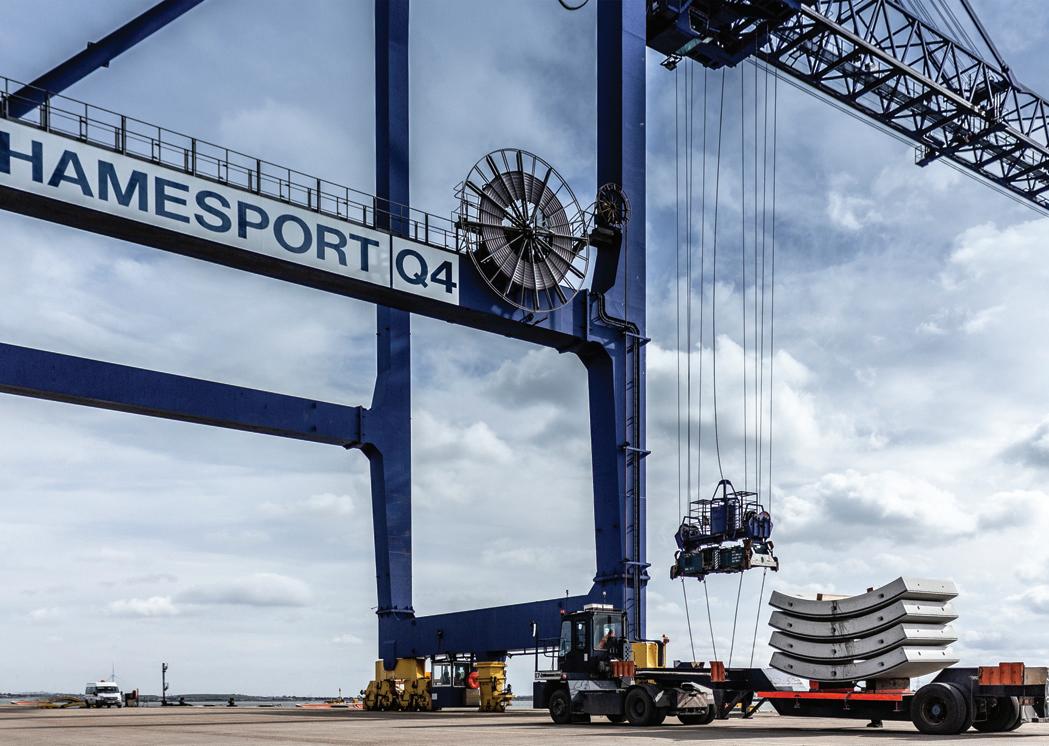






Pacadar, the Spanish pioneer in precast concrete solutions, has continued its expansion, picking up important project 'wins' from HS2 in the UK to Kuwait International Airport. Jose Luis Dominguez, International Commercial Director, and David Pastor, Commercial Director UK, reflect on the company's global presence and industry pressures to embrace sustainability. Profile by Andy Probert.
Pacadar, the world's oldest precast concrete manufacturer, remains both international and as close to customers as possible. "We pride ourselves on being immensely agile worldwide to meet demand as precast concrete is a notoriously bad traveller,” reflected Jose Luis Dominguez, Commercial Director Europe. “Being global and local is in our DNA.

“We know how every project requires a different service; the variety of environments and countries all demand a high level of adaptability, the greatest flexibility and an unswerving commitment to quality.”
Pacadar has developed a highly effective business model establishing temporary manufacturing hubs in the countries it's working in. Mr Dominguez explained how the company uses on-site manufacturing plants close to the construction site: “This gives us competitive advantages as logistic costs are dramatically reduced.
“Once the project is finished, we dismantle the plant and return the site to its former condition. This allows us to move around the globe, using quick-to-assemble tailor-made factories, taking into account the nature and scope of each contract. Our capacity to set up these units in a limited time is the warranty for our clients that project milestones will be accomplished. Closeness to customers is key.”
As an example, a large mobile factory used on a completed project in Riyadh, Saudi Arabia was dismantled, with one half erected for a similar job in the UK. Pacadar has enjoyed recent successes in the UK. So much so, it has established a main plant for precast concrete elements in the Isle of Grain in Kent to meet the company’s growing contract footprint.
On the Thames Tideway Tunnel project, ( a key modernisation of London’s ageing sewage system), Pacadar constructed the central and longest section of the

tunnel, over 12.7 km long. However, Europe's biggest infrastructure project, HS2, a new high-speed railway line between London and the West Midlands, offers a new benchmark for Pacadar.

Four new contracts have been signed over the last two years. The first was with Balfour Beatty Vinci (BBV JV) for the supply of 1,600 precast concrete tunnel linings for the Long Itchington Wood. Pacadar has completed its production for this project.
Skanska, Costain & Strabag (SCS-JV) HS2’s contractor delivering the London tunnels, awarded Pacadar two contracts to produce 8,400 concrete precast tunnel rings. The contract to supply rings for the Northolt tunnels is the largest contract Pacadar has ever won.
HS2’s London tunnels from West Ruislip to Euston station will have a total length of 26 miles. Construction of the first tunnel will be completed in 2024. More than 160,000 cubic metres of concrete will be used to make the segments, which form a 9.5m outside diameter tunnel, 350mm thick. Each complete ring
is made of seven segments, each weighing more than seven tonnes.


The strict geometrical tolerances required by HS2 are the most demanding that Pacadar has ever faced. A high precision testing system during the manufacturing process was implemented to meet the requested standards. In its commitment to innovation and sustainability, Pacadar uses a concrete mix of 40% GGBS from recycled materials from the steel industry, ensuring a considerable reduction of CO2 emission in the production of each ring.
Mr Pastor added: “This is an important contract for Pacadar, and we look forward to working with SCS-JV over the coming years and adding value to the project.”
As one of Pacadar’s key objectives, they signed a contract to supply the precast concrete beams, piers and planks for the Thames Valley Viaduct, within the Eiffage, Kier, Ferrovial and Bam Nuttall (EKFB JV) section for HS2. The precast concrete solution adopted for the beams is based on a proven technique previously implemented by Pacadar on high-speed lines. This agree ment significantly enlarges Pacadar’s port folio in the UK.
Backing up their local approach, Pacadar established two new units and is building a third to meet demand. Mr Dominguez said 130 people are engaged on the UK projects, which “now form the biggest part of Pacadar’s turnover.”

From a deep understanding of the precast concrete market, Pacadar is highly active on the international stage, completing iconic projects including the Panama City Metro, Riyadh Metro in Saudi Arabia, and Puebla's Toll Highway in Mexico. It also worked on Kuwait International Airport's new international passenger terminal, which is expected to be completed shortly. One key milestone was manufacturing heavy-weight arches to hold the roof. Pacadar manufactured six pieces in a day, a total weight that exceeded 1,000 tonnes of concrete.
The company is now manufacturing precast structures for the Common Shielding System for the new research infrastructure European Spallation Source (ESS) in Sweden. ESS, built and operated by
a European Research Infrastructure Consortium composed of 13 countries, UK and Spain among others, that will be the world's most advanced research facility for neutron science. It will study atomic structures using neutrons, and this facility could yield discoveries that will benefit energy, materials, medicine and the environment.



Pacadar contributed to the design and will manufacture the precast concrete shielding blocks under the most demanding requirements of accuracy, tolerances and safety conditions.
“We continue to monitor the international markets as big infrastructure projects come forward,” Mr Dominguez explained.

“High-speed rail networks such as HS2, tunnels and elevated metros are ones we are keen to add to our portfolio. There is also enormous business potential where solutions are sought for large, densely populated cities.”
Sustainable innovation
Pacadar continues to implement innovations – reducing carbon footprint in its production of pre-cast concrete by using more sustainable cement and raw materials. The adoption of temporary facilities to cut logistics and transport on a project is a key strength, while Pacadar's elite design and engineering team takes a lead role in minimising carbon emissions from conception by optimising structural solutions.
“For example, we evolved the use of steel fibres in production compared to steel rebar, which helps reduce the overall use of
steel,” affirmed Mr Pastor. “The Thames Valley Viaduct is another good example of how an adequate design contributes to this objective. The solution finally implemented, based on previous highspeed experiences, reduces the number of structural elements without compromising the quality, nor the structural requirements or safety.
“The industry is slowly transitioning to more sustainable concrete. But that entails continual research as quality and safety are key concerns. Tolerances, such as on HS2, are stringent and very demanding, which Pacadar can never sacrifice.”
The company continues to develop high-technology practices by investing in innovative materials for the precast sector and collaborating with clients to offer smarter solutions that are more costeffective, efficient, durable and lighter. It also pursues a strong policy on recycling materials such as water, oil, batteries and paper, investing in technologies with reduced carbon emissions within its production facilities.
Mr Dominguez concluded: “As demand increases for infrastructure globally, we envisage Pacadar taking the lead in offering its experience, expertise and know-how.” n

